Circular Economy: Entrepreneurship in Waste Management
2019
Jan 15th
At The German Academic Exchange Service (DAAD)
On 15 January 2019 – the 58th Cairo Climate Talks offered a central forum for public and private experts from Germany and Egypt, in cooperation with youthinkgreen Egypt, to discuss the role of circular economy and entrepreneurship in waste management, entrepreneurial potentials and challenges, and how the public and private sectors can foster circular economy. Ms. Isabel Mering, Director of the German Academic Exchange Service (DAAD) Egypt, and Mr. Sönke Siemon, Deputy Head of Mission at the German Embassy in Cairo, opened the panel discussion.
Ms. Mering remarked the added value of circular economy for businesses and consumers. “Circular economy provides an opportunity to turn the liability of waste to profit, preserves the resources, and creates employment opportunities,” she stated, “Since the 1980s, in Germany, the Ministry of Environment, Nature Conservation and Nuclear Safety (BMU) has enforced a circular waste management policy to create a waste value chain. This has led to employment of 270,000 people working in around 11,000 companies.” “Car makers have standardized the production of car components to reuse or recycle the scrapped components in order to save costs and increase resource efficiency,” Mr. Siemon said, “New regulatory frameworks and financing tools are needed, and a societal rethinking will be essential to promote customer interest. Circular economy holds the promise of significant climate benefits.” Prior to the start of the panel discussion, Ms. Yasmine Radwan, program manager at youthinkgreen Egypt, presented the highlights of the annual conference activities of sustainability and entrepreneurship youth program (SEYP), addressing how their established ecosystem supports entrepreneurs.
The panelists discussed the ecosystem’s challenges for circular economy and entrepreneurship in waste management. “Despite the on-going improvements in current waste management, there are three main types of bottlenecks: lack of supply and market data, quality standards, and regulatory frameworks,” Dr. Henning Wilts, Director of Division Circular Economy at Wuppertal Institute stated, “When there is a long-term and stable framework in place, this supports entrepreneurs to invest.” “In Egypt, the waste sector faces unprecedented challenges. The main challenge is to control the supply of waste, especially for food-grade recycled products. Other challenges are to find qualified workers, and competition with the informal sector,” Mr. Usama Zaki, CEO of BariQ, said. He highlighted the urgency to formalize the informal sector. He continued to say that the informal sector could formalize their activity when they have enough financial stability and incentives.
Mr. Mahmoud Galal, CEO of BioEnergy, mentioned his main challenge as an entrepreneur was the market penetration. “’To succeed in the waste sector, one needs to involve the informal sector in any part, either on the collection level or the recycling level; securing stable supplies is crucial to the business,” he stated. Moreover, the lack of data on collection rate represents a major challenge. “Lack of data and nonexistence of education about waste sector and value added of recycling can be an opportunity for entrepreneurs to start working on it,” Ms. Karina Boers, Advisor of Private Sector Engagement, at NSWMP, GIZ, said. She addressed the study of 19 business opportunities that could encourage entrepreneurs to work in the waste sector. She stressed the feasibility of these opportunities and how entrepreneurs can contribute to the value chain.
The experts elaborated the potentials and opportunities of entrepreneurship in waste management. Mr. Galal and Mr. Zaki urged the audience to start with having a successful business model, readiness to fail, and stamina to sustain success and growth. On the international scale, Dr. Wilts pointed out the exportation opportunity of recycled plastic for Europe. “Many European companies have recently announced plans to use 30% of recycled material in their products; they are eager to import this amount of plastic from Egypt,” he stated. Ms. Boers mentioned that NSWMP and GIZ plan to establish a recycling hub to provide: technical assistance, growth support, and financial support. This hub will build a bridge between the private and public sector. Furthermore, Mr. Galal and Mr. Zaki recommended to create a formal zone for the informal sector, where they can invest in a venue and put their machinery in it, with the support of the regulations. The formal zone can hold hundred recycling units to work out the supply problem.
The discussion concluded that circular economy can create a paradigm shift for waste management system. All panelists agreed that strong enabling frameworks and financing tools are essential for building ecosystem for entrepreneurs who can provide a sustainable environment and contribute to economic growth at the same time.
Background Information:
The Cairo Climate Talks are conceived, organized and hosted as a cooperation between the German Embassy in Cairo, the Egyptian Ministry of Environment, the German Academic Exchange Service (DAAD) and the Deutsche Gesellschaft für Internationale Zusammenarbeit (GIZ). For more information, please visit our website or contact us via info@cairoclimatetalks.net.
Meet our Panelists
Dr. Henning Wilts
Director of Circular Economy Division, Wuppertal Institute
Mr. Usama Zaki
Chief Executive Officer, BariQ
Ms. Karina Boers
Advisor of Private Sector Engagement, National Solid Waste Management Program, GIZ Egypt
Mr. Mahmoud Galal
CEO of BioEnergy
Meet our moderators
Abdelrahman Fahmy
Chariman of youthinkgreen Egypt
Venue / location
The German Academic Exchange Service (DAAD)
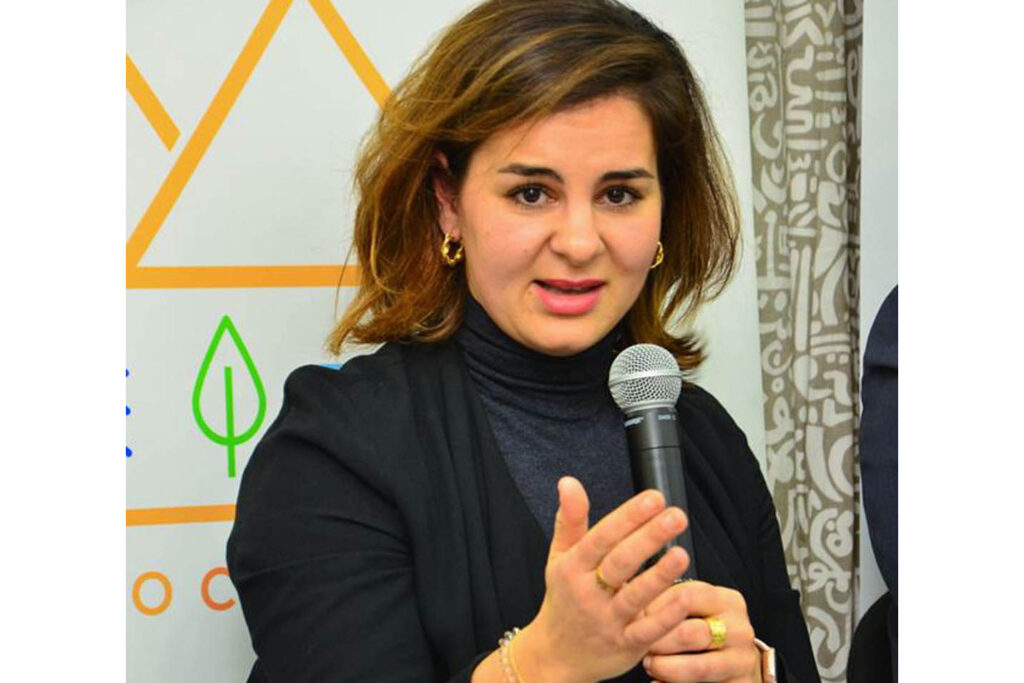
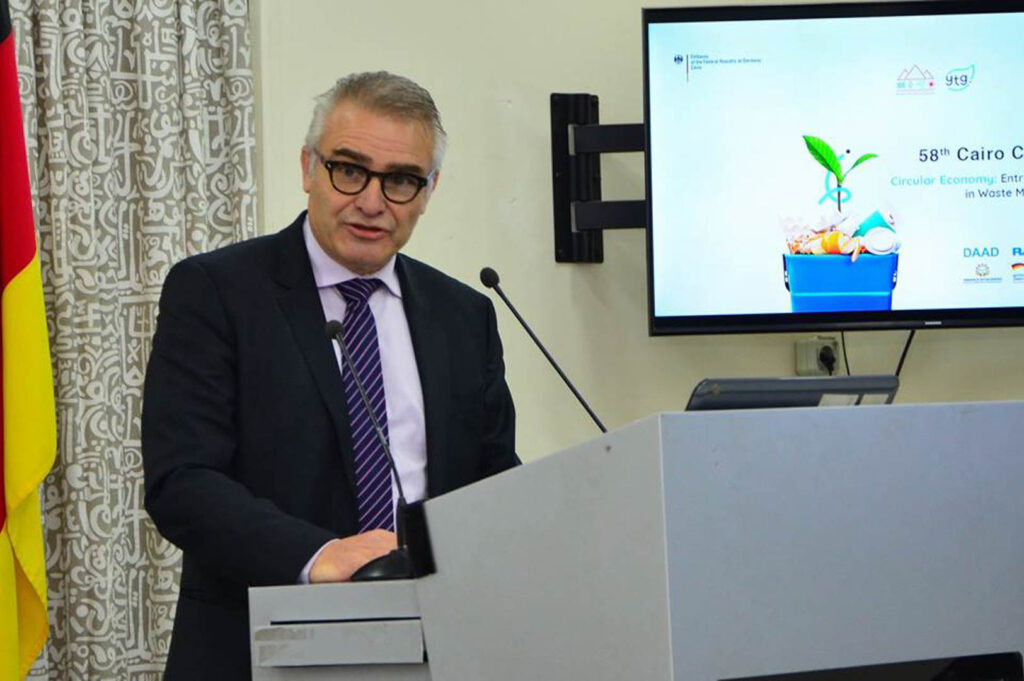
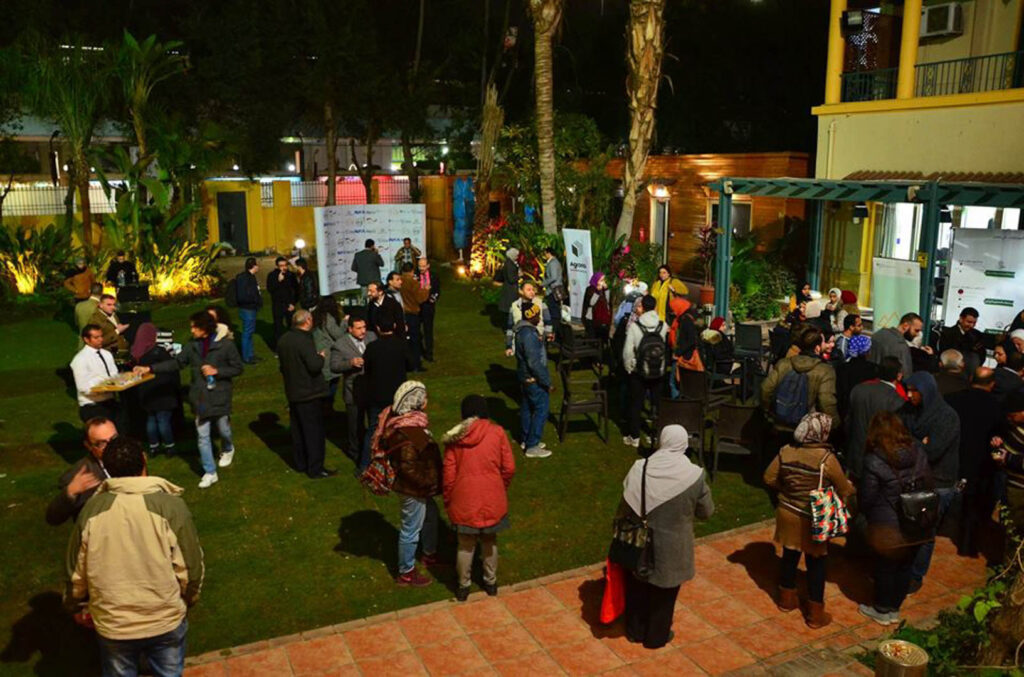
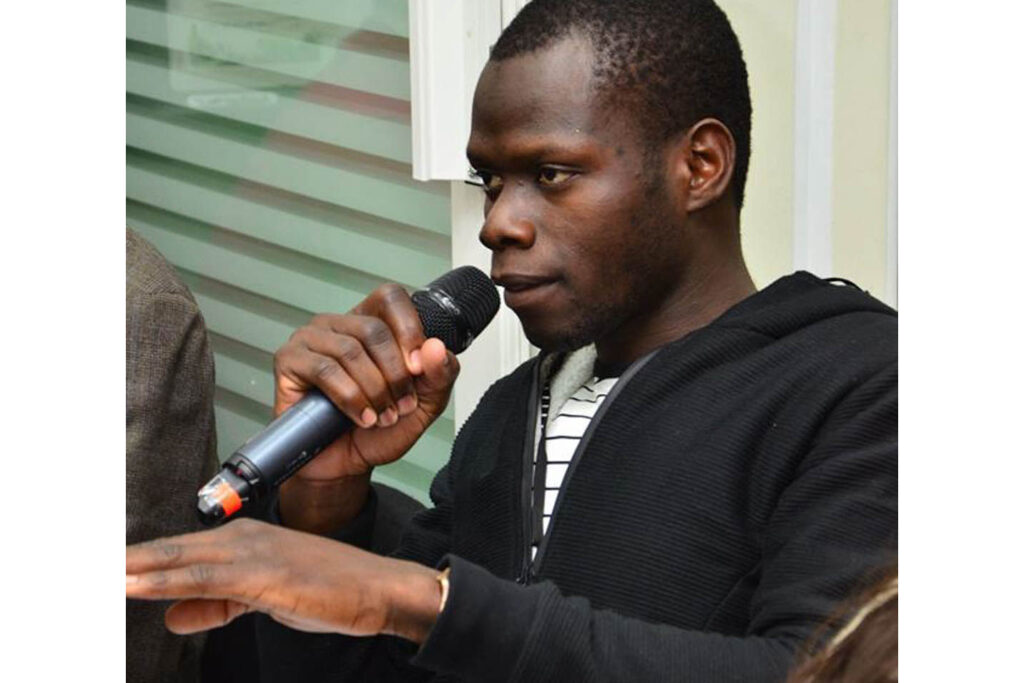
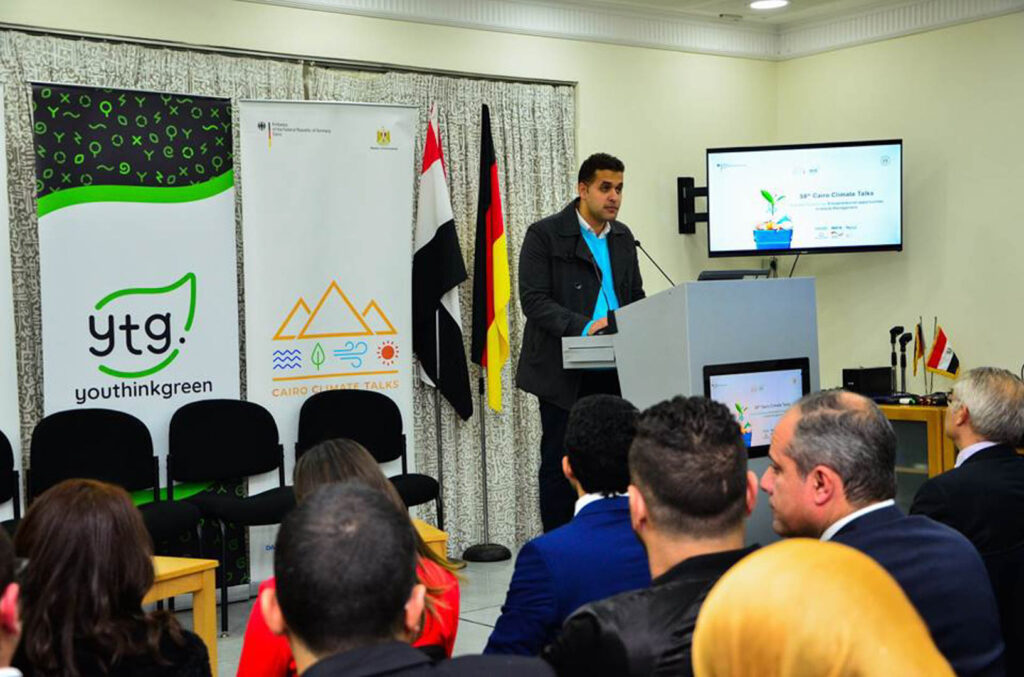
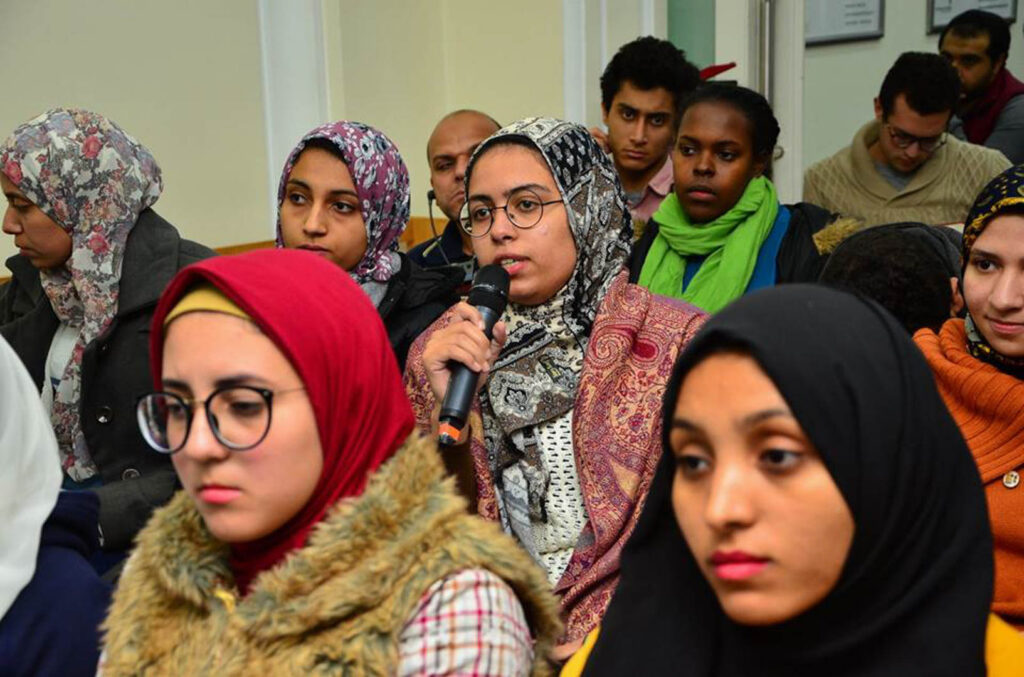
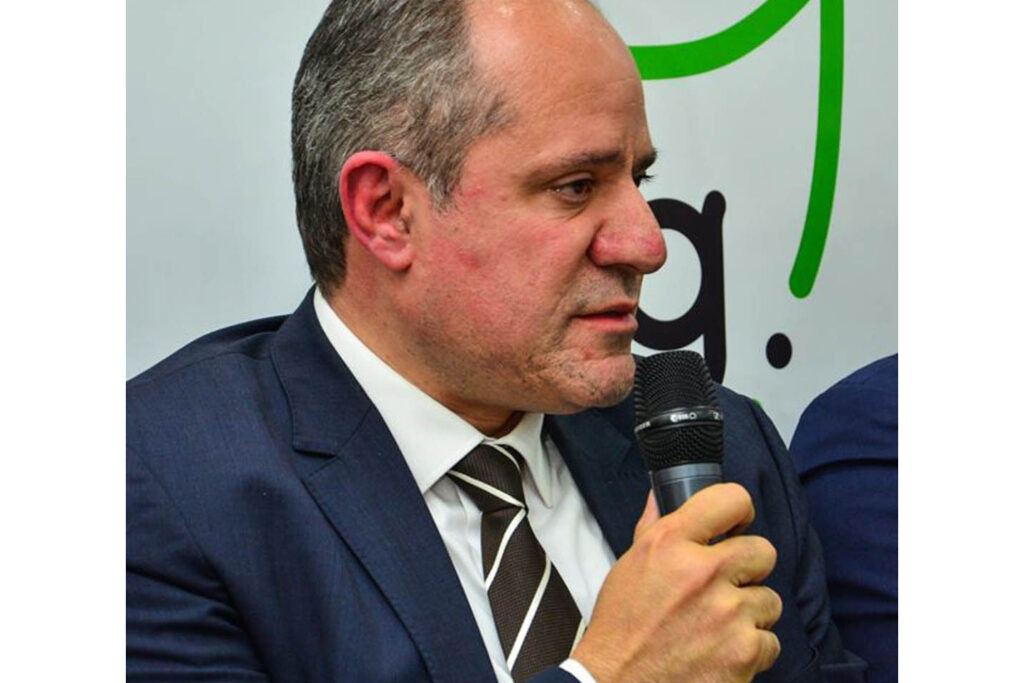
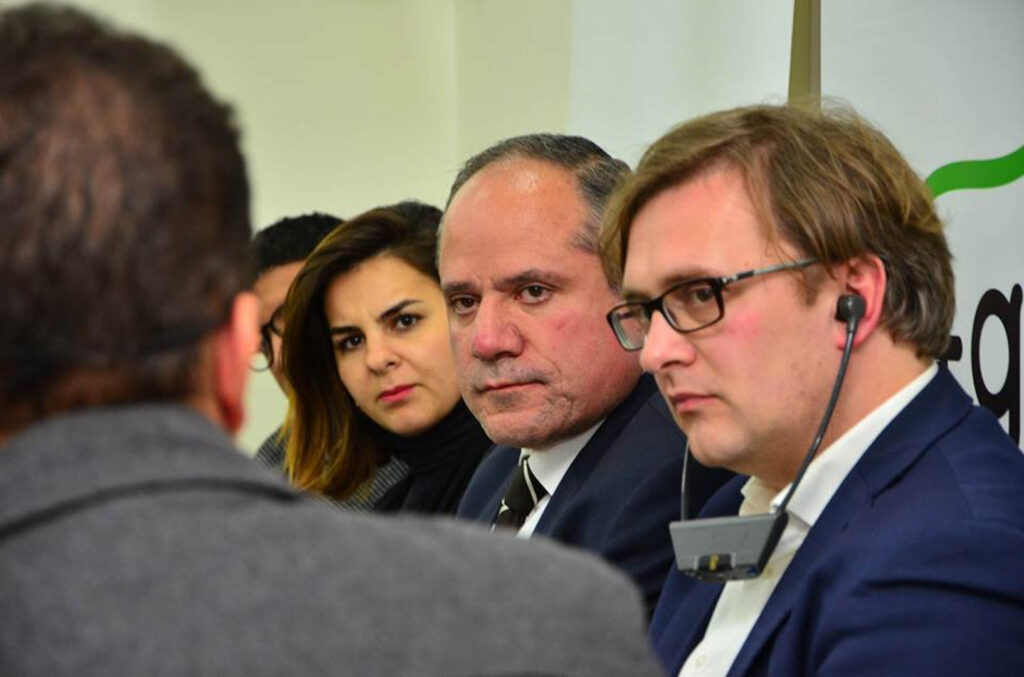
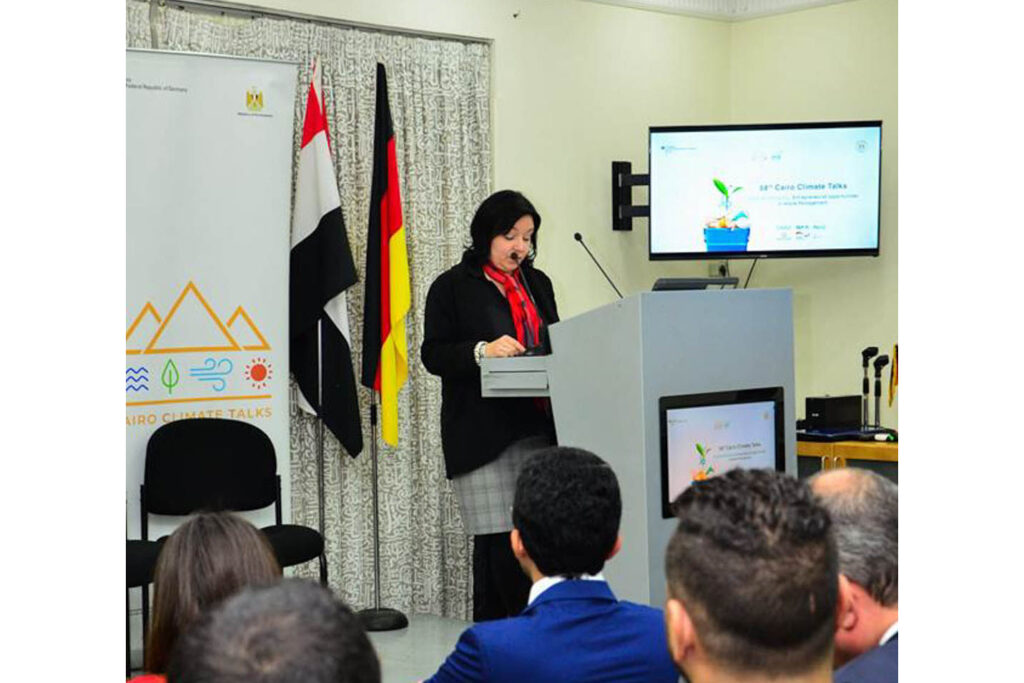
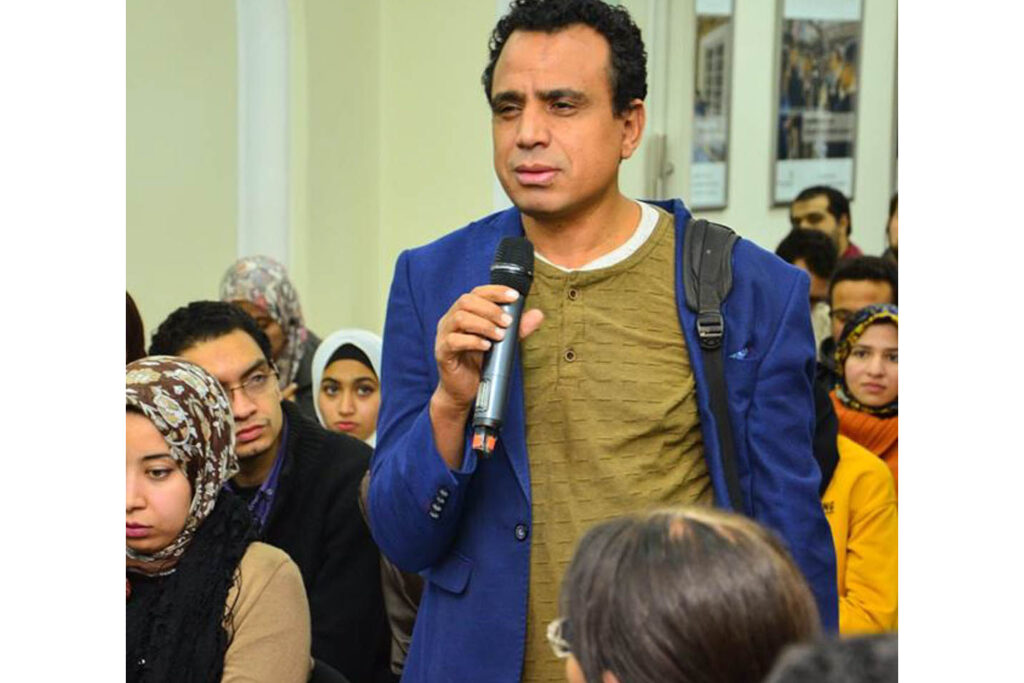
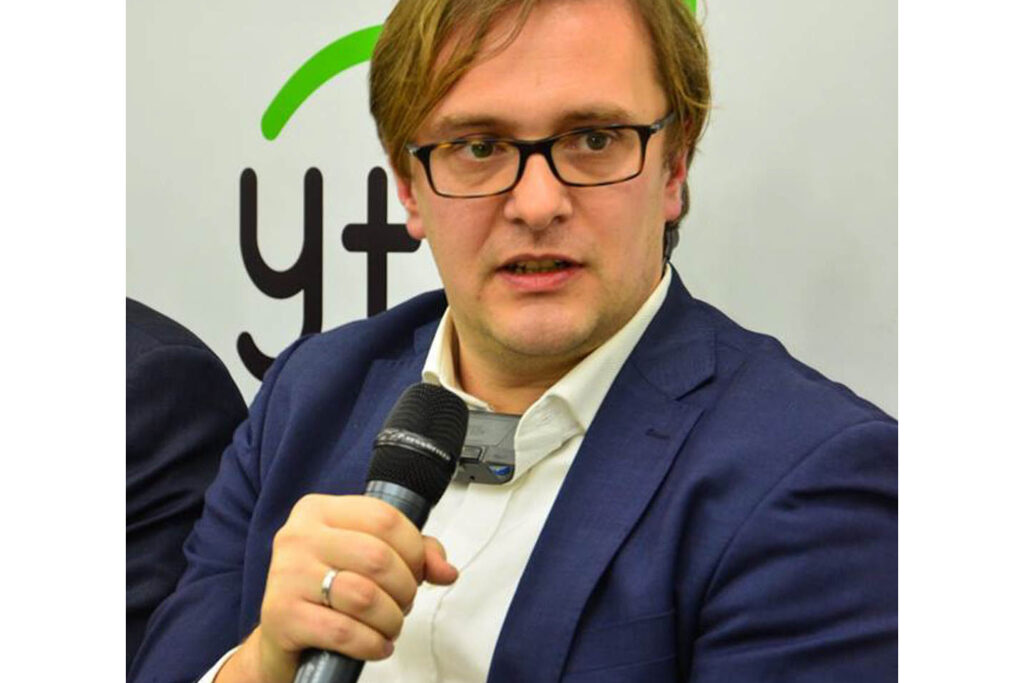
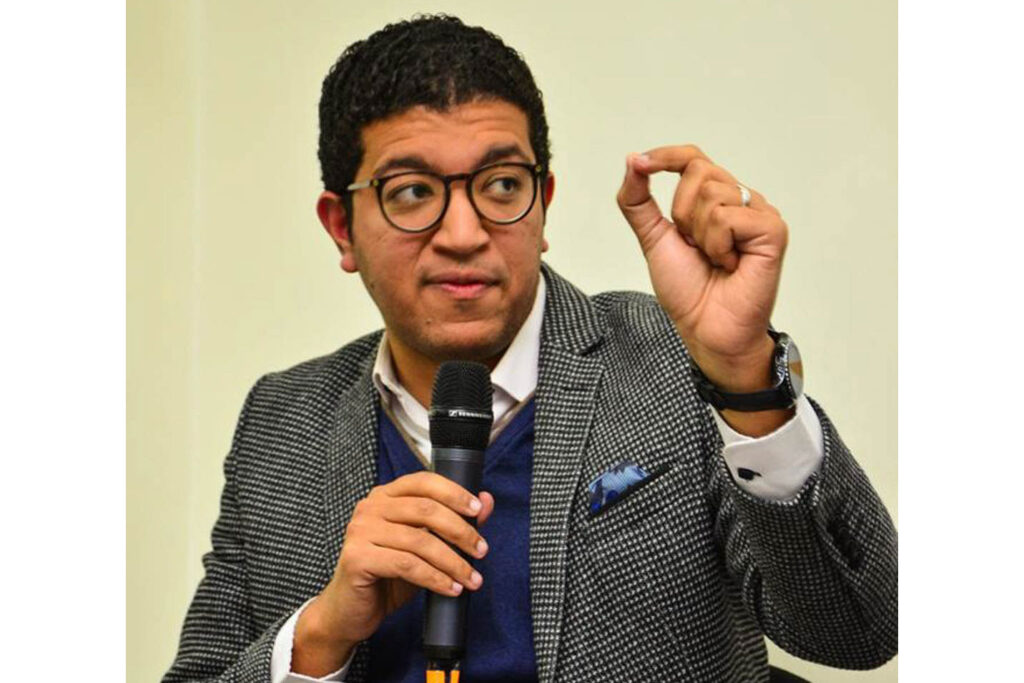
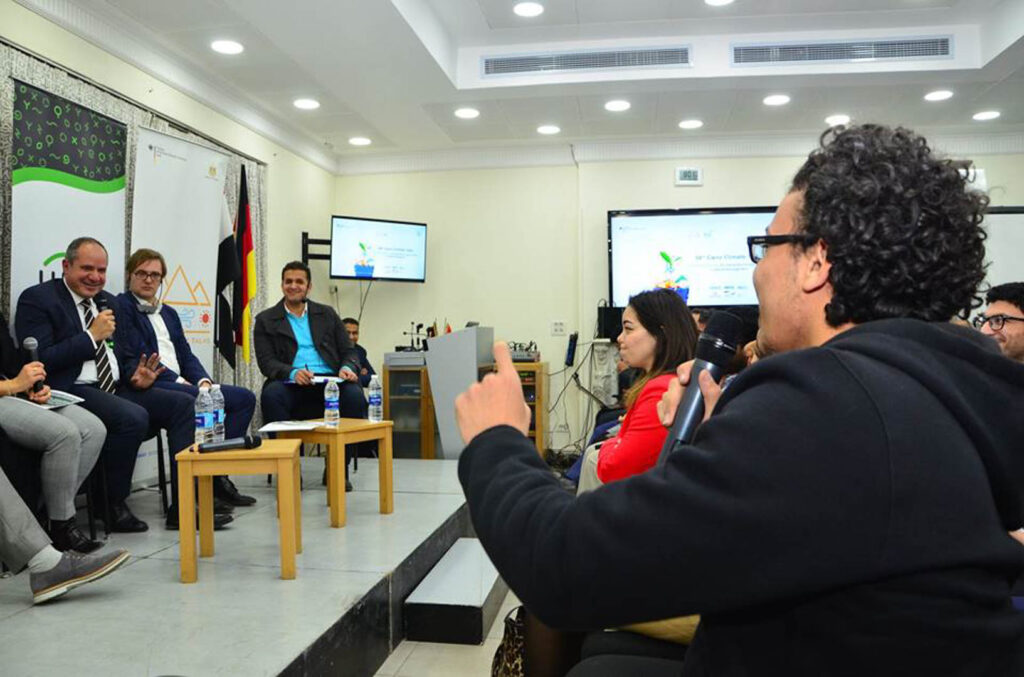
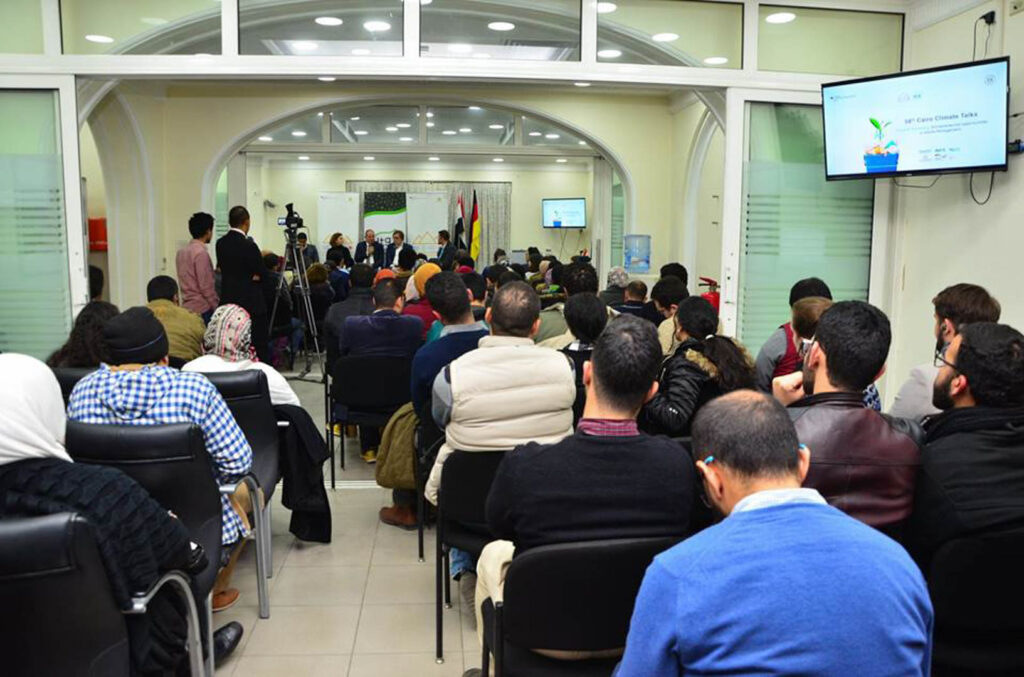
Are you interested? Don’t miss out by registering to our events. We hope to see you there.
